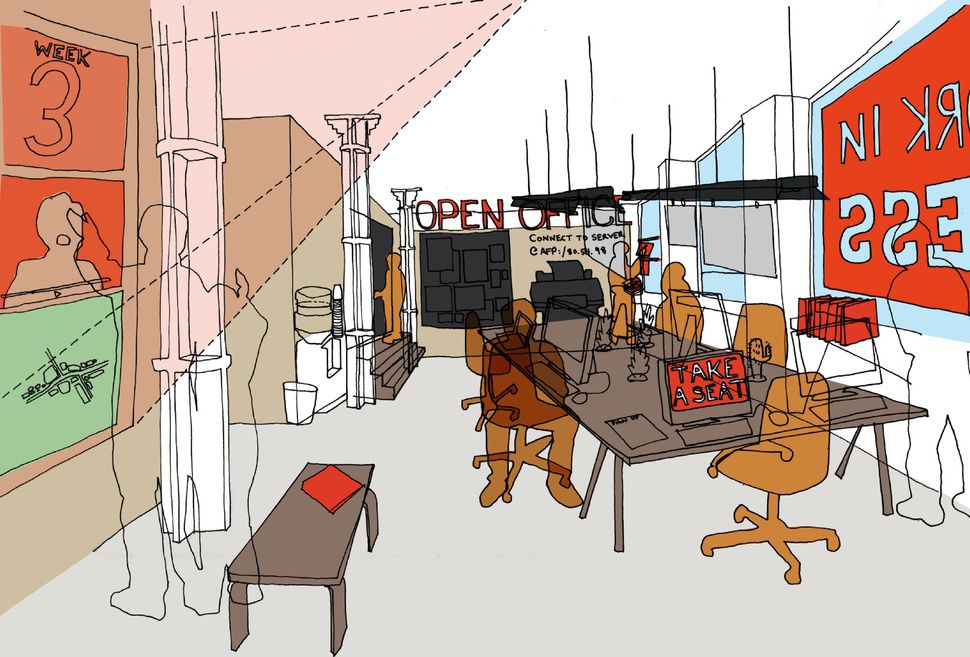
The Open Office interior sketch. Courtesy We Made That. The Architecture Foundation has recently launched a month-long initiative named The Open Office. The scheme, which is described as “part ‘Citizens Urban Advice Bureau’, and part functioning practice” is the brainchild of London-based practice We Made That and will take place in the offices of The Architecture Foundation in Southwark, London until 22 March. Operating on a walk-in basis, and displaying all work openly, The Open Office aims to engage and educate local communities on issues of architecture, urbanism and planning.
The idea was submitted in response to The Architecture Foundation’s Project Space Open Call, which invited submissions for experimental modes of architectural exhibition. The response by We Made That aims to examine the implications for the public of the 2011 Localism Act in England – a political policy which aims to empower local communities in matters of urbanism, but has had limited effect due to the confusing nature of planning policy and the complex issues presented by urbanism.
We Made That has a history of working with communities, with co-founder Holly Lewis explaining: “we try to make connections between people and places, and also between people, places and the process that delivers a new design.” The practice hopes that by operating in an approachable and transparent manner some of the confusion surrounding the 2011 Localism Act can be explored in a productive way.
The project has garnered a positive reception, with architecture critic Tom Dyckhoff saying he has “high hopes” for the project and Oliver Wainwright of The Guardian commenting that it “looks set to raise important questions about the future of participatory planning”.
Alongside the drop-in practice, each week will be focused around short research projects on different areas of London, with each community highlighting different concerns in relation to localism and planning; at the end of each week a public pin-up session will take place to gather the lessons that the week’s research has yielded. We Made That have recruited a number of volunteers to assist in the research aims of the project. Wainwright will also chair “Learning From The Open Office”, a discussion held on the 20 March which aims to synthesize the lessons of the scheme as a whole.Not only will The Open Office be a useful tool to empower London Communities under the 2011 Localism Act in England, the transparent way it operates will also provide some much needed exposure for the architecture, planning and urbanism professions: in a survey conducted last summer it was revealed that 15% of the British Public are entirely unaware of what architects do, with nearly three-quarters unaware of the role they play in planning.
Susie Clapham, a volunteer for the scheme commented that “it opens doors for architects to be more entrepreneurial in approach to new ways of doing business. I would say the traditional mode of architectural practice is having to be more adaptive and multi-disciplinary in order to respond to the needs of the community and to me practices such as We Made That, Assemble, Practice Architecture and The Decorators are starting to explore that.”
More info on Open Office
